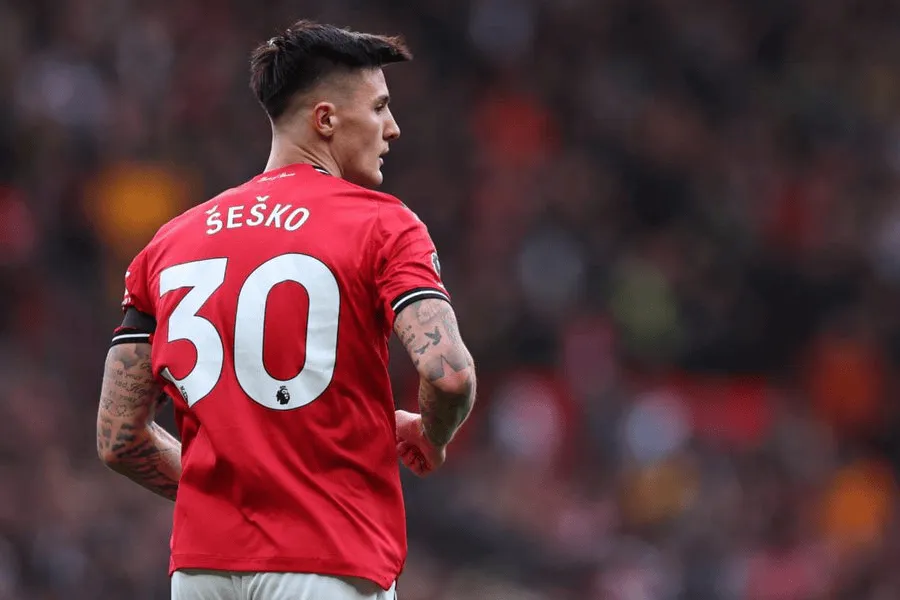Josh Kroenke Initially Wanted Arsenal to Sign Šeško This Summer, But Was Persuaded by Berta


Arsenal possesses a certain cyclical quality. When legendary manager Arsène Wenger departed in 2018, sources revealed plans for Josh Kroenke to assume a more direct leadership role. However, Arsenal was then in a state of confusion, mocked by rivals as weak and outdated.
Worse still was the perception of the owner’s absence, with senior officials complaining about being unable to fathom Stan Kroenke’s intentions. Lewis’ arrival in 2020 changed everything. A lifelong Gunners fan and long-term ally of the Kroenke family, he rebuilt communication bridges and began implementing a revival vision. With Mikel Arteta already in charge, Lewis fully backed the manager while formulating a multi-year strategy on behalf of the Kroenke family to restore Arsenal to the summit.
His core idea was to establish a "football leadership team"—essentially a football board featuring weekly meetings of key members including the chairman, manager, sporting director, and medical director. Multiple internal and external sources stated that this marked the first time in decades Arsenal had a clear direction, with a high-standard culture completely transforming the club.
As results improved, resurgent commercial revenues began to close in on Liverpool’s.
Arteta shares a close bond with Lewis, a connection further strengthened by his growing collaboration with new sporting director Andrea Berta. The latter’s summer transfer dealings also reflected Lewis’ precise grasp of the owner’s intentions. A senior internal figure noted that Berta is the only person capable of convincing Stan Kroenke to approve signings, always presenting detailed plans to justify the necessity of transfers to the owner.
Securing Eberechi Eze from Crystal Palace was symbolic, not only because Arsenal pipped Tottenham Hotspur to his signature. The club recognized the mounting pressure to win immediately, which explains the concerns raised when Kai Havertz was injured. Lewis successfully persuaded the ownership group to green-light the Eze deal.
However, cracks had already emerged. There had previously been proposals for Josh Kroenke to work under Lewis, but this was shelved due to his commitments to the Denver Nuggets. As Arsenal rose, Josh Kroenke became increasingly active.
Having not been involved in Berta’s appointment, Josh Kroenke, according to sources, insisted on signing Benjamin Šeško over Dominik Szoboszlai but was successfully persuaded otherwise by the sporting director. Beyond this, his appearance at the
PFA Awards was seen as a clear signal, followed by his personal push to sign Piero Hincapié from Bayer Leverkusen.
Lewis’ sudden departure weeks later puzzled the football world. Even those with strained relations with him acknowledged that the former lawyer played a pivotal role in Arsenal’s revival. In addition to Arteta’s transformative impact, many attributed the club’s cultural shift to Lewis’ approach and personality—and this unified structure continues to endure.
While Arsenal officially stated that the board changes merely reflect a desire for "continuous evolution," it is hard to believe there were no underlying tensions. Multiple sources claimed "Josh clearly wants to be in charge," which inevitably conflicts with the fact that Lewis was internally regarded as the de facto leader.
Eze’s signing could determine the outcome of the upcoming derby and also foreshadowed Daniel Levy’s exit. This setback is the latest in a series of transfer failures for Tottenham, with the ownership group closely monitoring the club’s progress.
The club aims to reach the next level but feels Levy has fallen into fixed patterns over 25 years.
It should be acknowledged that these patterns have laid a higher foundation for the Lewis family’s children. Despite the numerous controversies surrounding him, Levy’s achievement in transforming Tottenham from a mid-table mess into a Champions League finalist with a world-class stadium is undeniable.
The issues lie at a micro rather than macro level, and hesitation over pure football decisions at critical moments. Those who have negotiated with Levy also feel he overreaches in transfers, with signings overly chasing "trends."
